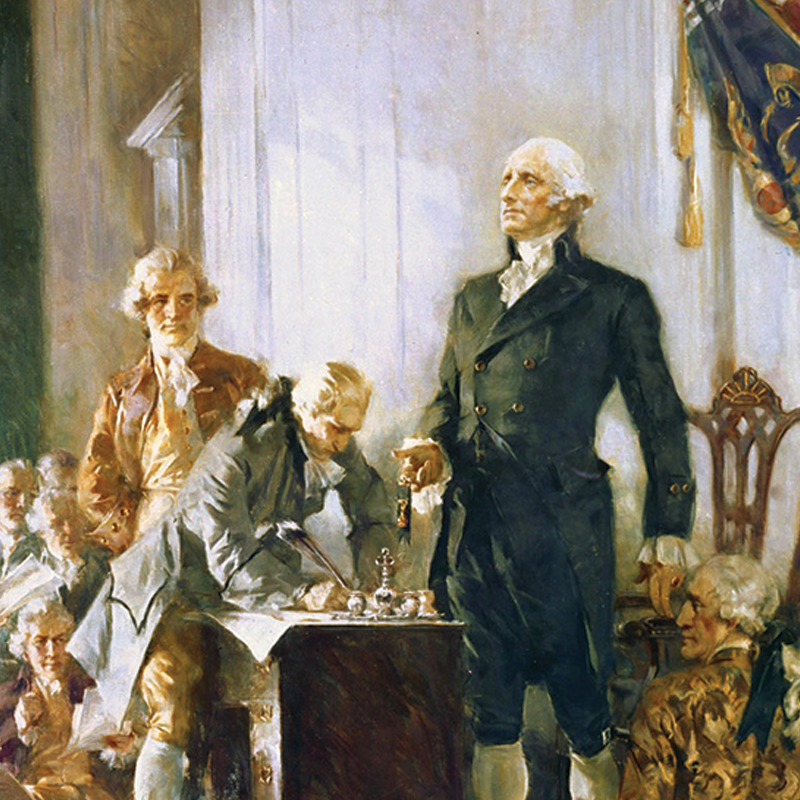https://polisci.wustl.edu/xml/faculty_staff/12983/rss.xml
Professor Crisp engages in the comparative study of electoral systems, legislative politics, and interbranch relations.
Brian F. Crisp received his PhD in Political Science from the University of Michigan. His work on the electoral systems, legislative politics, and interbranch relations has been published in The American Journal of Political Science, The American Political Science Review, The British Journal of Political Science, The Journal of Politics, and elsewhere. His most recent book (with Cunha, Olivella and Rosas), Electoral System Incentives for Interparty and Intraparty Politics, will be published by Oxford University Press. He is currently collaborating on several projects related to electoral systems, democratic institutions, and representation, including one on the possibility that roll call vote results often generate a biased view of legislative politics, another on the question of whether electoral rules are responsible for the under-representation of minorities in U.S. local governments, and one that attempts to give an overview of how electoral systems provide incentives for both interparty and intraparty politics.
Selected Publications
Books
-
Crisp, Brian F., Santiago Olivella, and Guillermo Rosas. 2020. The Chain of Representation: Preferences, Institutions, and Policy in Presidential Systems. New York: Cambridge University Press.
Articles
- Crisp, Brian F., Benjamin Schneider, Amy Catalinac, and Taishi Muroka. Forthcoming. "Capturing Vote-Seeking Incentives and the Cultivation of a Personal and Party Vote." Electoral Studies.
- Cunha Silva, Patrick and Brian F. Crisp. Forthcoming. "Unintended Institutional Interactions: Presidential Coattails and Gender Party Quotas." Political Research Quarterly.
- Cunha Silva, Patrick and Brian F. Crisp. Forthcoming. “Ballot Spoilage as a Response to Limitations on Choice and Influence.” Party Politics.
- Ainsley, Caitlin, Clifford J. Carrubba, Brian F. Crisp, Betül Demirkaya, Matthew J. Gabel, and Dino Hadzic. 2020. “Roll Call Vote Selection: Implications for the Study of Legislative Politics. American Political Science Review. 114(3): 691-706.
- Cunha Silva, Patrick, and Brian F. Crisp. 2020. “The Impact of Cuing Candidate Quality on Female Candidates.” Electoral Studies. 64: 1-10.
- Crisp, Brian F. and Betül Demirkaya. 2020. "Strategic Entry and Strategic Voting in Majoritarian Systems. The Journal of Politics. 82(1): 57-71.
- Patty, John W., Constanza Schibber, Elizabeth Penn, and Brian F. Crisp. Forthcoming. “Valence, Elections, & Legislative Institutions.” American Journal of Political Science.
- Crisp, Brian F., Betul Demirkaya, Leslie Schwindt-Bayer, and Courtney Millian. 2018. “The Role of Rules in Representation: Group Membership and Electoral Incentives.” British Journal of Political Science. 48: 47-67.
- Olivella, Santiago, Kristin Kanthak, and Brian F. Crisp. 2017. “. . . And Keep Your Enemies Closer: Building Reputations for Facing Electoral Challenges.” Electoral Studies. 46: 75-86.
- Montgomery, Jacob M., Santiago Olivella, Joshua D. Potter, and Brian F. Crisp. 2015. “An Informed Forensics Approach to Detecting Vote Irregularities.” Political Analysis 23(4): 488-505.
- Crisp, Brian F., Joshua D. Potter, Santiago Olivella, and William Mishler. 2014. “Elections as Instruments for Punishing Bad Representatives and Selecting Good Ones.” Electoral Studies 34: 1-15.
- Crisp, Brian F., Santiago Olivella, Michael Malecki, and Mindy Sher. 2013. “Vote-Earning Strategies in Flexible List Systems: Seats at the Price of Unity.” Electoral Studies 32(4): 658-669.
- Brian F. Crisp, Santiago Olivella, and Joshua D. Potter. 2013. “Party-System Nationalization and the Scope of Public Policy: The Importance of Cross-District Constituencies.” Comparative Political Studies 46(4): 431-456.
- Crisp, Brian F., Joshua D. Potter, and John J.W. Lee. 2012. “Entry and Coordination in Mixed-Member Systems: A Controlled Comparison Testing the Contamination Hypothesis.” The Journal of Politics 74(2): 571-583.
- Crisp, Brian F., Santiago Olivella, and Joshua D. Potter. 2012. “Electoral Contexts that Impede Voter Coordination.” Electoral Studies 31(1): 143-158.
- Crisp, Brian F., and Amanda Driscoll. 2012. “The Strategic Use of Legislative Voting Procedures.” Legislative Studies Quarterly 37(1): 67-97.
- Desposato, Scott W., Matt Kearney, and Brian F. Crisp. 2011. “Using Cosponsorship to Estimate Ideal Points.” Legislative Studies Quarterly 36(4): 531-565.
- Crisp, Brian F., Scott W. Desposato, and Kristin Kanthak. 2011. “Legislative Pivots, Presidential Powers, and Policy Stability.” The Journal of Law, Economics, and Organization 27(2): 426-452.
- Schwindt-Bayer, Leslie, Michael Malecki, Brian F. Crisp. 2010. "Candidate Gender and Electoral Success in Single Transferable Vote Systems." British Journal of Political Science 40(3): 693-709.
- Crisp, Brian F., Nathan M. Jensen, Guillermo Rosas, and Thomas Zeitzoff. 2010. “Vote-Seeking Incentives and Investment Environments: The Need for Credit Claiming and the Provision of Protectionism.” Electoral Studies 29(2): 221-226.
Courses
- Political Science 102B: Introduction to Comparative Politics
- Political Science 495: Research Design and Methods



